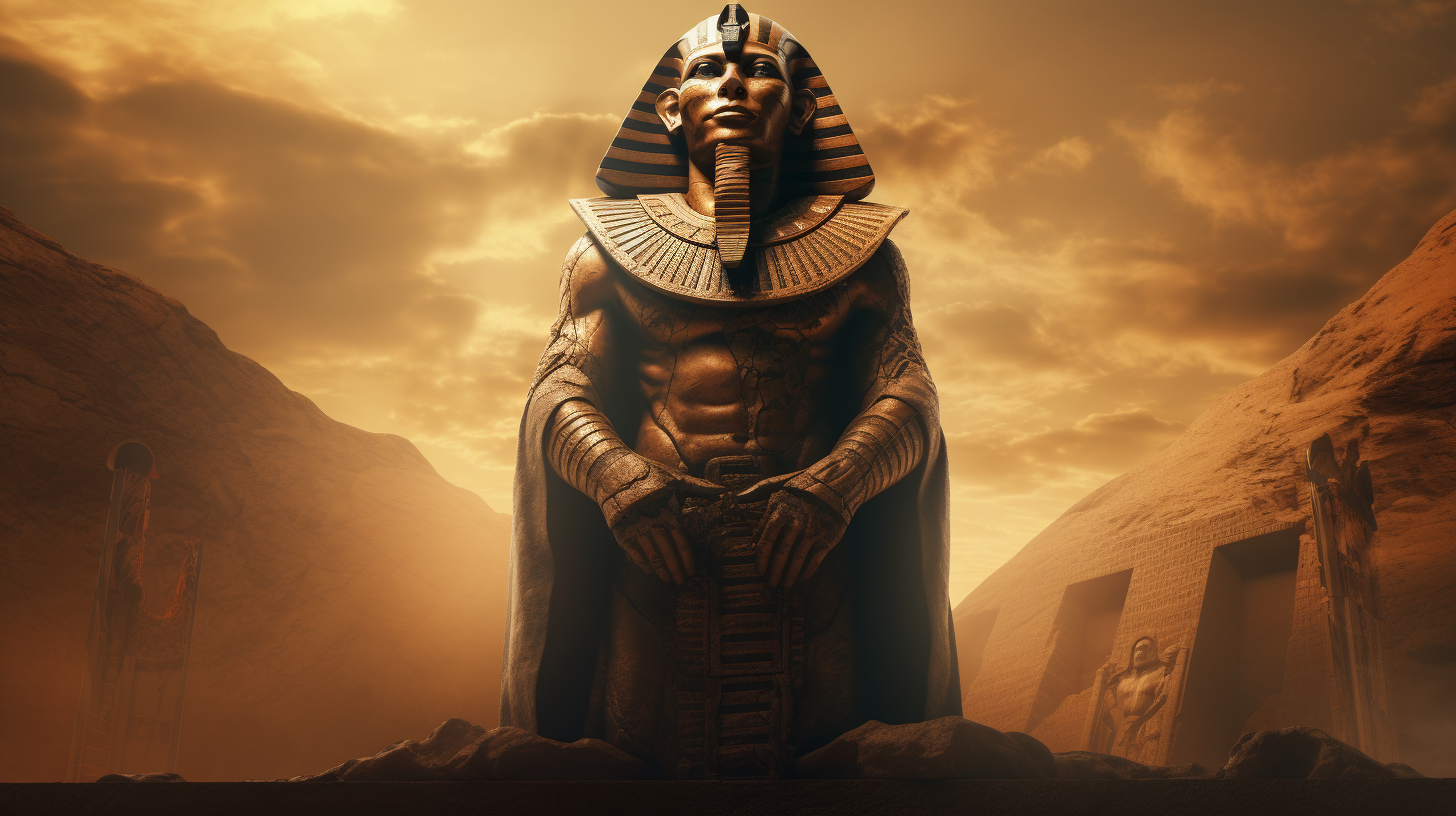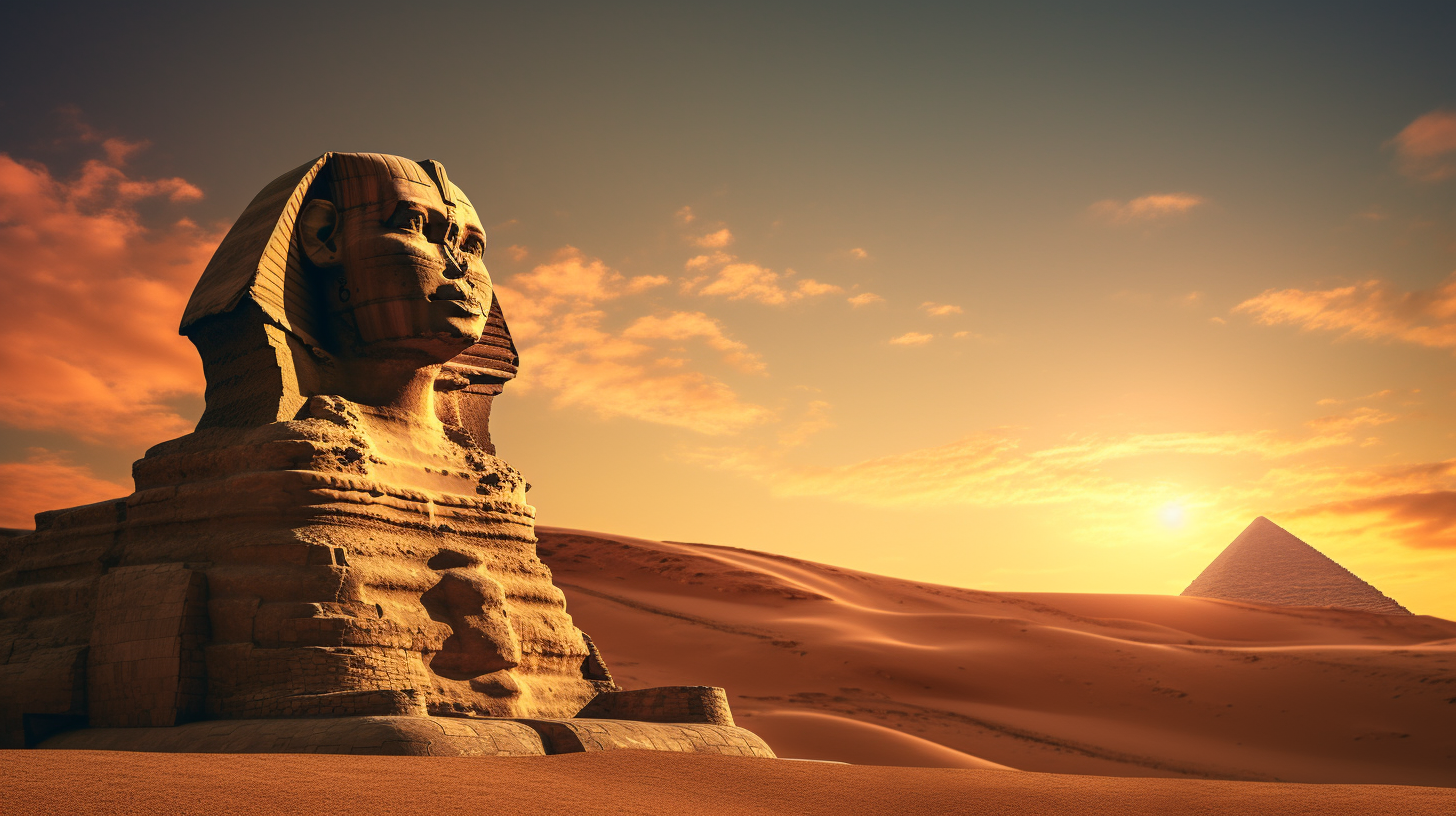In the annals of history, there have been individuals whose extraordinary abilities have captured the imagination of the world. One such figure was Edgar Cayce, the renowned American psychic and healer, who gained worldwide attention in the early 20th century for his astounding remote diagnoses of illnesses and his purported ability to access the Akashic Record, often referred to as the “book of life.”
Yet, it wasn’t just his medical prowess that made Cayce a legendary figure; it was his claims about the Sphinx and its connection to the lost continent of Atlantis that continue to intrigue us to this day.
During one of his deep psychic trances, Cayce made a remarkable assertion regarding the Sphinx. He revealed that he had been a high priest in ancient Egypt in a previous incarnation and was directly involved in the construction of this enigmatic monument.
What’s more, Cayce’s readings suggested that the Sphinx and the pyramids were constructed around 10,490 BC. While this may sound astonishing, there is a compelling argument that Cayce’s readings were surprisingly accurate.

Cayce’s connection to the Sphinx didn’t end there. He firmly believed that this colossal statue held the key to unlocking the mysteries of Atlantis—a civilization often dismissed as a mere myth. According to Cayce, Atlantis, as described by Plato, was a real place, and its existence aligned with a golden age in ancient Egypt. This synchronicity of timelines raises questions about whether the Sphinx might indeed be a relic of this advanced civilization.
One of Cayce’s most tantalizing prophecies pertained to a hidden chamber beneath the Sphinx, a place that he believed contained the fabled Hall of Records from Atlantis. In this hall, he suggested, lay the repository of ancient knowledge, technology, and libraries waiting to be rediscovered. Cayce’s vision hinted at a lost chapter of human history—one where we possessed a sophisticated system of information storage that he likened to the “Atlantean internet.”
In 1978, some 45 years after Cayce’s readings, the Edgar Cayce Foundation embarked on the Sphinx Exploration Project. Their mission: to find the elusive chambers beneath the Sphinx that might lead to the Hall of Records. They managed to drill eight holes beneath the monument, uncovering anomalies that hinted at the possibility of chambers rather than mere cracks or caves. However, their efforts were abruptly halted by the Egyptian army, leaving the question of what lies beneath the Sphinx unanswered.
The notion of a hidden chamber housing ancient records remains a tantalizing enigma. It raises profound questions about the true age of humanity and the possibility of advanced civilizations predating our current understanding of history. While we may not have fully unveiled the secrets of the Sphinx and Atlantis, the enduring fascination with these mysteries continues to inspire exploration and speculation.
Video:
In the end, the story of the Sphinx and its connection to Atlantis is a reminder that there is still much about our past that eludes us. The quest for knowledge and the allure of the unknown are the driving forces that keep us seeking, exploring, and, ultimately, discovering the remarkable truths that may one day reshape our understanding of the ancient world.

17 thoughts on “Uncovering Mysteries: The Sphinx and the Enigmatic Connection to Ancient Civilizations”
Comments are closed.